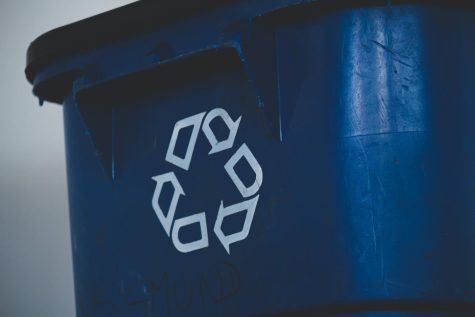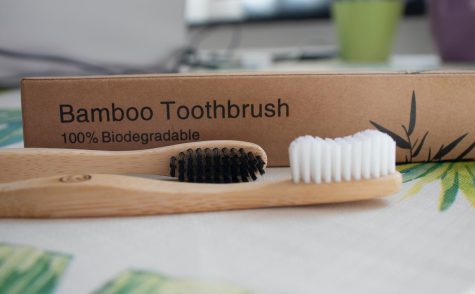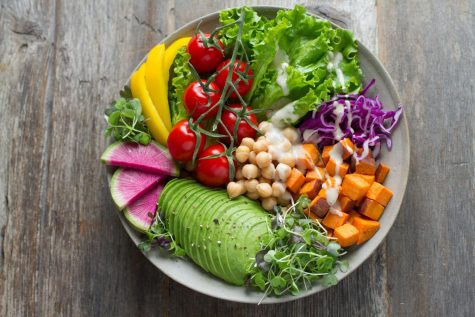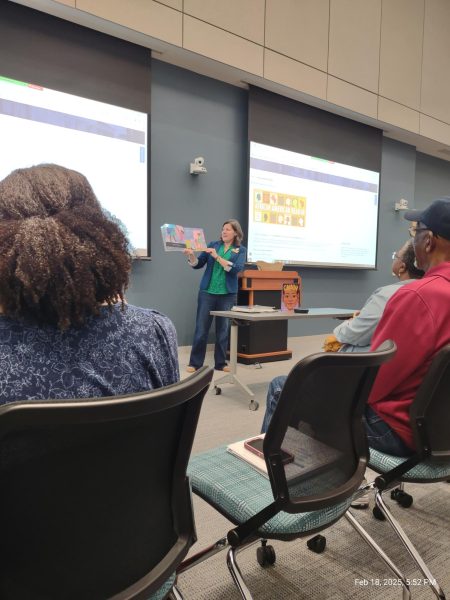6 ways UNCW students can reduce their environmental impact
With mounting school work and countless responsibilities, college students are in a place in which adding complications to our days seems difficult, if not almost impossible. Along with this, entering adulthood and being independent means building habits that reflect personal morals or opinions that may remain for years to come. With our current global circumstance, sustainability is something that can be promoted on an individual level, small changes to your daily routine. The call to our generation to reduce our impact on the environment is stronger than ever, with mounting evidence that ecosystems are failing, the ozone layer is being depleted, and climate change is real. If we are not actively protecting our planet, we are working against it. Without further ado, these are some things you can do as a college student at UNCW that may reduce your impact on the one and only planet earth.

1. Recycle.
Though it may seem simple, this is a first step towards making a daily habit towards your goal. There may be recycling compactors outside your dorm, and if not, there are recycling centers located around campus. The largest one is located on the corner of Lionfish Drive and Plyler Drive. Though this might be a long walk, it’s easy to keep a box in your room to collect your recyclables. This way, you can bring them to recycling sites every few weeks or months, depending on how many products you go through daily.

2. Use Reusables.
Spending a little extra money might be worth it in the long run in this case. A reusable coffee cup could save you countless plastic or paper coffee cups. Starbucks has a policy where you can bring a refillable cup into locations to have it refilled. They are still working on a COVID-friendly option for drive-thru, but going inside to purchase your coffee is a simple change that can be placed into your routine. Dunkin Donuts has a program of the same type, but it has been halted for the time being in light of the coronavirus. Glass tupperware is also an option, as well as choosing to make homemade meals instead of takeout options, which may come in disposable containers. Many disposable containers at fast food options can also be recycled or reused as tupperware as well. Clothing can be reused in the form of shopping at thrift stores (online or in person) or clothing swaps. Along with being sustainable, used items can also be cheaper, which is appealing when you’re on a student budget.

3. Buying Food at Sustainable Locations.
Many places in Wilmington use sustainable methods, with more organizations joining them every day. UNCW’s Plastic Ocean Project compiled a helpful resource if you are trying to find locations that have ocean-friendly practices. Many of these locations are marked with a number of stars showing how sustainable the practices of these establishments are. Not only are they more sustainable than other spots, but they also offer delicious food and have more diverse options for those who are vegetarian or vegan. On campus, Dubs in particular offers many plant-based options or options that cater towards those with dietary restrictions. On top of this, they offer compost and recycling stations inside.

4. Reduce Energy Consumption.
Turning off your lights, taking slightly shorter showers and turning off the sink while you brush your teeth are all ways to reduce energy consumption on a daily basis. By doing this, the toxic fumes produced by energy manufacturing plants are reduced as well. If you are interested in products you buy or wastes produced by certain industrial practices, check out this resource, which shows exactly what chemicals are released by different practices, and what effects on the planet you would be lessening by changing your habits on a daily basis.

5. Buy Products That Are Produced By Eco-Friendly Companies.
Many companies support practices that are not sustainable to the planet; think of animal testing, meat production companies and the materials used by clothing manufacturers. In many cases, buying an item directly may support a company that has practices not aligning with your values. Though a lot of sustainable options might not be possible for college students simply because of pricing, checking the tags on items when you go to the store can be a start and can help you to explore your options when shopping. Even substituting a plastic toothbrush with a bamboo toothbrush, or buying eggs or meat that are produced by farmers using free-range methods can make a small, but important, difference.

6. Eat Less Meat.
This one is simple! It’s clear that not only do animal farms produce large amounts of waste that damage ecosystems nearby, but also have greater carbon emissions than other productions of food, and use a considerably larger amount of water than the farming of plants. Cow farming in particular does a great deal more damage than the farming of other animals, releasing more carbon into the air than other industrial sectors. Eating a plant-based diet exposes the body to more micro and macronutrients and sets you up for a healthier life. People with a plant-based diet are shown in studies to live longer, and may even encounter less sickness in their lifetime. Even one less meal a week containing meat is enough to make a difference.
With a new year and a chance to revise some habits that may not reflect personal goals or morals, these are perfect habits to implement in your day that will help to reduce our impact on the planet. After all, this is the only habitable one we have.











